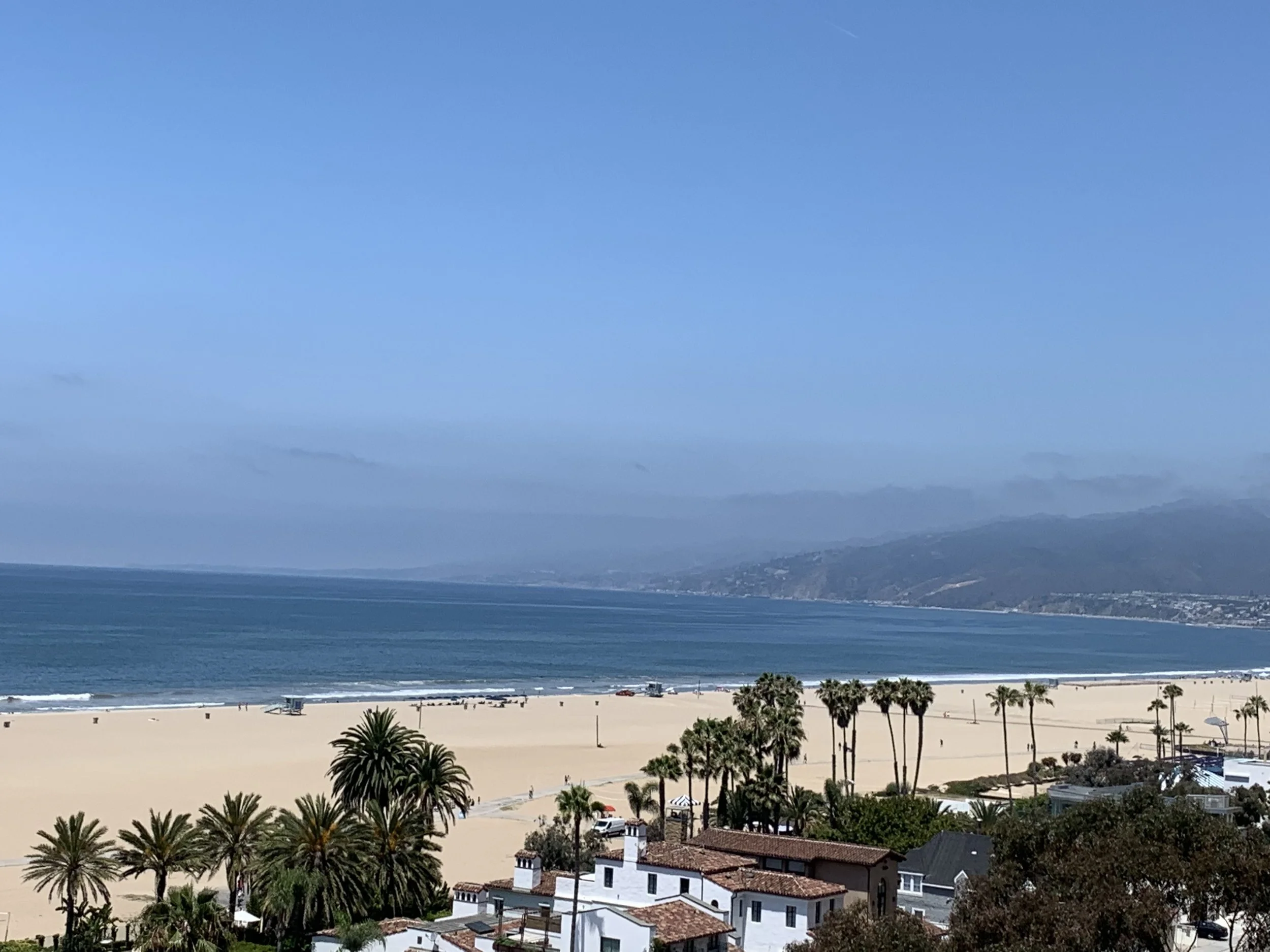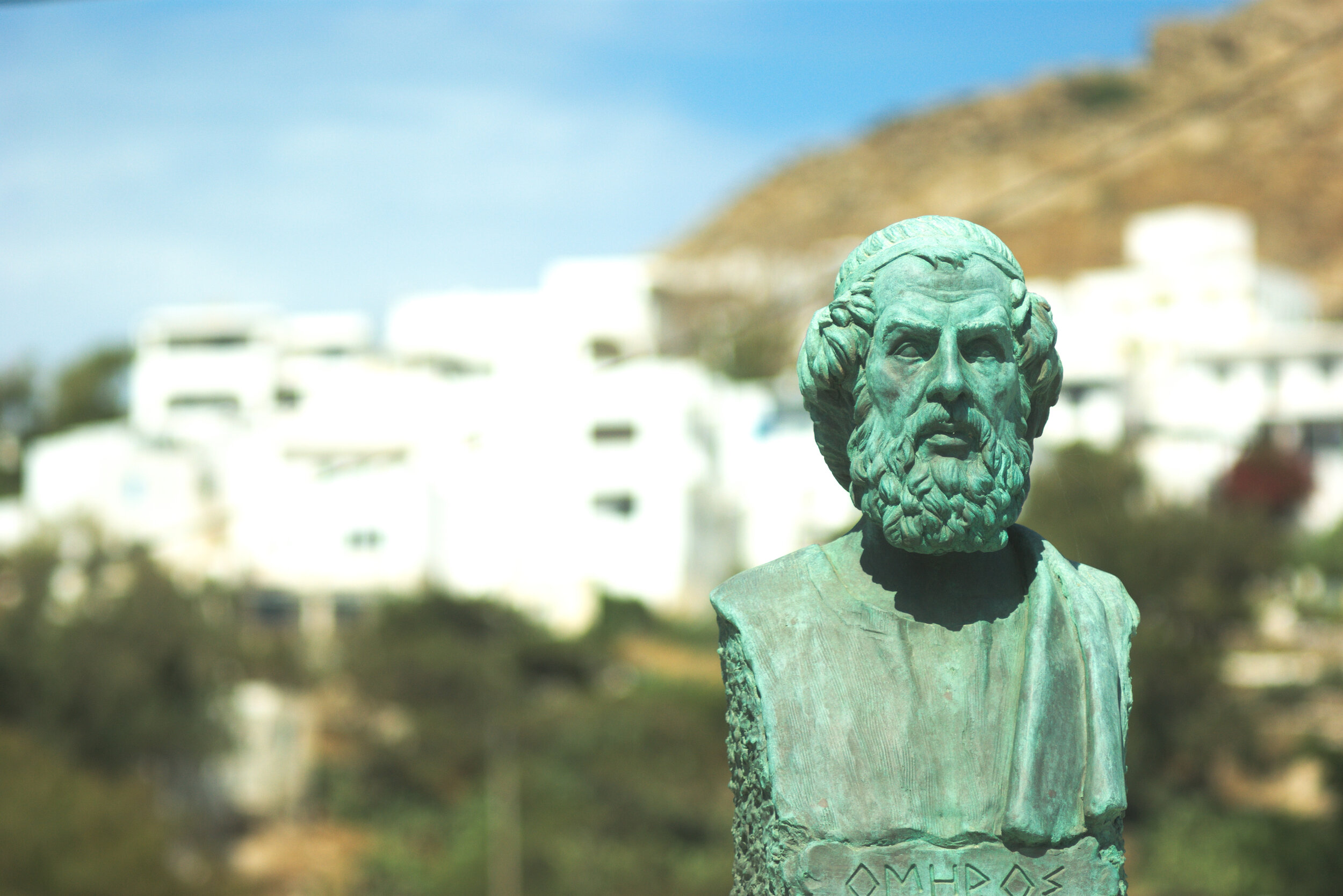An Enchanted Vision
There’s a painting I’ve loved for a long time now. It depicts scenes from the life of the Cyclops, the famous one eyed monster of Greek mythology. I first discovered it completely by chance a few years ago when searching on the internet for something or other. Ah the wonders of google! You can see a copy of it above this piece. It was in fact one of several wall murals that were discovered during the excavation of the Augustan Villa at Boscotrecase in Italy. The villa was accidentally discovered in 1902 during the construction of a new train line between Boscotrecase and Torre Annunziata near Pompeii. It is thought to date from the last decade of the first century BC. I have to confess that I was drawn so strongly to the painting simply because of the use of colour- its deep aquamarine has long been favourite of mine.
A couple of years after my initial discovery I came upon the painting a second time; again quite accidentally while wandering around the Metropolitan Museum of Art. As I walked through the Classical Galleries I found myself standing directly in front of the original and its companion, a depiction of the story of Perseus and Andromeda. I was as awestruck as I had been when standing in front of the Riace Bronzes in Reggio Calabria some fifteen years prior. For the rest of our time in Manhattan, a period where I would often feel overwhelmed by the ferociously relentless intensity of this wonderful city, I returned with faithful consistency to the gallery and bathed mentally in the exquisite blue and green pigments of the mural. I always left feeling a little lighter as though the colours had bestowed a gentle solace upon my spirit.
Although we are far from New York now, I often think about this painting and spend time looking at reproductions. I’ve read fairly detailed studies and I know that the painter was engaged in the business of enchanting his viewer. There are in fact two scenes depicted in this painting. In the foreground we see the gigantic and brutish Cyclops seated upon a rocky crag with the beautiful nymph Galatea, the object of his unrequited love, nearby in the water upon a dolphin. This is the story which Theocritus, the Hellenistic poet who is known as the father of pastoral poetry, tells in the eleventh of his Idylls.
‘Nicias, there is no remedy for love, no liniment,
As I believe, nor any balm, except the Muses.
Theirs is a gentle, painless drug, and in men’s power
To use; but it is hard to find… This at any rate was the way
My countryman the Cyclops eased his pain,
Polyphemus long ago, when he loved Galatea’ (lines 1-8)
While we gaze upon these figures, our eyes cannot help but be drawn to the figures above in the right corner of the picture, the man hurling a rock at the prow of a disappearing ship, Thus we have the depiction of the Cyclops’ terrible fate, described in Homer’s epic poem the Odyssey, when, blinded by the crafty Odysseus, he tries in vain to destroy the departing vessel. Therefore the viewer sees both stories simultaneously . There is no linear narrative in this vision but rather we escape the limitations of time and simply gaze at the monster who is filled at once with yearning and hatred and all the while surrounded by the endlessly mysterious blue-green space.
I’ve always thought an indicator of true art is that one can draw inspiration and solace simply from an uninformed engagement with it- my initial contact with this painting was my visceral emotional reaction to the beauty of colour- while also discovering that a deeper engagement allows one to see just how much lies beneath the surface, ready for exploration. Did the painter know, I wonder, that he was offering a visual correlation to the relationship that exists between pastoral and epic poetry? It’s a fascinating relationship that merits a far lengthier and more erudite discussion. We see it both in the Iliad when Hephaestus fashions the pipe-playing herdsmen on the Shield of Achilles and we hear it in the first line of Milton’s Paradise Regained when he says, ‘I who erstwhile the happy garden sung’ thus recasting the entirety of his epic Paradise Lost as a pastoral poem. Of course the answer to that question is immaterial; it is the fact that the painting and the poetry are extant, part of the beauty of Western civilization and that we can therefore ask the question at all which is the true marvel.





